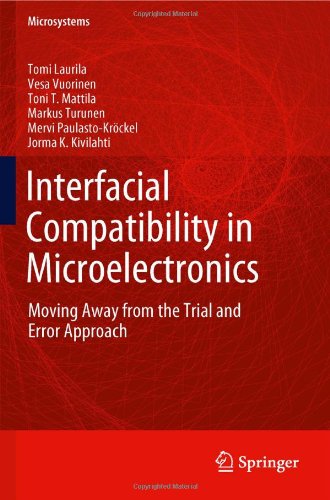

Most ebook files are in PDF format, so you can easily read them using various software such as Foxit Reader or directly on the Google Chrome browser.
Some ebook files are released by publishers in other formats such as .awz, .mobi, .epub, .fb2, etc. You may need to install specific software to read these formats on mobile/PC, such as Calibre.
Please read the tutorial at this link: https://ebookbell.com/faq
We offer FREE conversion to the popular formats you request; however, this may take some time. Therefore, right after payment, please email us, and we will try to provide the service as quickly as possible.
For some exceptional file formats or broken links (if any), please refrain from opening any disputes. Instead, email us first, and we will try to assist within a maximum of 6 hours.
EbookBell Team

5.0
108 reviewsInterfaces between dissimilar materials are met everywhere in microelectronics and microsystems. In order to ensure faultless operation of these highly sophisticated structures, it is mandatory to have fundamental understanding of materials and their interactions in the system. In this difficult task, the “traditional” method of trial and error is not feasible anymore; it takes too much time and repeated efforts. In Interfacial Compatibility in Microelectronics, an alternative approach is introduced.
In this revised method four fundamental disciplines are combined: i) thermodynamics of materials ii) reaction kinetics iii) theory of microstructures and iv) stress and strain analysis. The advantages of the method are illustrated in Interfacial Compatibility in Microelectronics which includes:
solutions to several common reliability issues in microsystem technology,
methods to understand and predict failure mechanisms at interfaces between dissimilar materials and
an approach to DFR based on deep understanding in materials science, rather than on the use of mechanistic tools, such as FMEA.
Interfacial Compatibility in Microelectronics provides a clear and methodical resource for graduates and postgraduates alike.